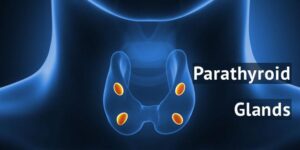When it comes to chemicals and nutrients, your body is very particular. It functions best when everything is balanced and in the right quantities. When your hormones are slightly out of whack, you see the signs right away. The same is true when you have too much or too little of essential nutrients: Your body responds unfavorably.
A clear example of this can be seen in two calcium disorders: hypercalcemia (too much) and hypocalcemia (too little). In this post, our experienced team of specialists at Ally Endocrinology in Troy, Michigan , helps you understand the causes and symptoms of, and treatments for, hypocalcemia.
Why your body needs calcium
The mineral calcium serves several functions in your body’s day-to-day operation. Your muscles rely on calcium for their ability to move, your nerves count on calcium to relay messages to your brain, and your bones need calcium to regenerate and stay strong.
When your calcium supply plummets — hypocalcemia — you start to see the signs, including:
- Muscle spasms and stiffness
- Tingling in your extremities
- Fatigue
- Cognitive issues and memory failure
- Onset of anxiety or depression
- Difficulty swallowing and speaking
If you ignore your hypocalcemia and it advances, you may have seizures, arrhythmias, voice box spasms, or heart failure.
What causes hypocalcemia?
There are many factors that can lead to hypocalcemia, but they generally fall into one of two categories: you’re not consuming enough calcium, or something’s interfering with your ability to absorb calcium. Here are some of the specific culprits that cause hypocalcemia:
Hypoparathyroidism
Your parathyroid glands secrete hormones that regulate the calcium and phosphorus in your body. If your parathyroid is malfunctioning and you have low levels of parathyroid hormones (hypoparathyroidism), you end up with hypocalcemia.
Hypoparathyroidism can result from an autoimmune disease, genetic makeup, neck surgery, insufficient intake of magnesium, or radiation during cancer treatment.
Poor diet
Your body doesn’t produce its own calcium, so it relies on adequate consumption of calcium, which can be found in foods such as dairy products, seeds, beans, lentils, almonds, leafy greens, and edamame, to name a few.
But your body can’t process calcium on its own; it needs vitamin D to facilitate absorption. You can get vitamin D by eating salmon, orange juice, and fortified cereals — and by spending some time in the sun.
Illness
Infections, kidney disease, and some intestinal disorders can mess with your ability to maintain proper calcium levels. Babies can suffer from hypocalcemia if the mother has diabetes, and progressing cancer can deplete your calcium levels as well.
Medications
Certain anti-epileptic medications are known to rob patients of calcium, including: phenytoin (Dylantin), rifampin, and phenobarbital.
Stress and anxiety
Under extreme stress, especially conditions that include hyperventilating, your body may respond with respiratory alkalosis, which in turn leads to hypocalcemia.
Are you at risk for hypocalcemia?
Anyone with a history of gastrointestinal disorders, liver or kidney failure, pancreatitis, or anxiety may be at risk for hypocalcemia. Fortunately, our team is highly experienced in diagnosing and treating hypocalcemia.
Although we treat your symptoms promptly to help you get back to normal, we’re most concerned with the underlying cause of your condition. Once we determine the reason behind the problem, we can treat the source so you have a chance of eliminating the condition.
Your treatment may be as simple as a few lifestyle changes and dietary supplements, or you may require treatment to address a damaged kidney or liver. Once you meet with our team, we can get to the bottom of your hypocalcemia and let you know which treatment plan is best for you.
To learn more about calcium disorders, schedule an appointment at any of our three Troy locations. Call us today, or request a visit online.



